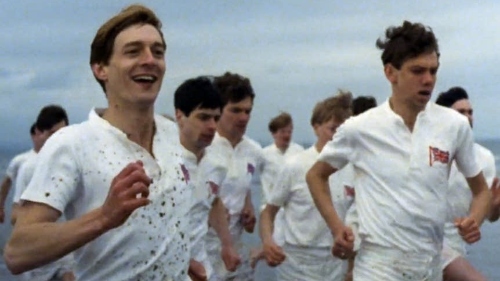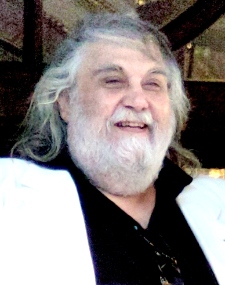
Vangelis, the Greek composer who won an Oscar for Chariots of Fire, died on Tuesday in a French hospital while being treated for COVID-19, according to Greek media reports. He was 79.
Born Evángelos Odysséas Papathanassíou on March 29, 1943, Vangelis was raised in Athens, Greece, where he taught himself piano and formed a rock band that played Beatles covers before he began working on film scores — a passion he would stick with years later when he was offered a coveted spot in the prog-rock band Yes, whose singer, Jon Anderson, he would eventually collaborate with.

As a composer of film music, Vangelis was one of the greats, and he’s considered one of the true pioneers in electronic music. His theme for Carl Sagan’s 1980 PBS series Cosmos brought him early attention in America, but it was his score for Chariots of Fire the following year that won him global acclaim. He was an odd choice for the sports film but he was chosen because producer David Puttnam loved his work in the French nature documentary Opera Sauvage.
Though Chariots of Fire would go on to win an Academy Award for its iconic score, for which Vangelis performed all of the instruments, including synthesizer, piano, drums, and percussion, the musician declined to attend the ceremony, having been quoted as saying, “I hate the idea of competition.” Nonetheless, the film’s soundtrack would go on to reach #1 on the Billboard charts before being nominated for Record of the Year at the Grammys.
Coming off of Alien, director Ridley Scott was red-hot, and he subsequently hired Vangelis to compose the otherworldly score for Blade Runner, which remains a classic. His other film credits include the Jack Lemmon movie Missing (1982), the Mel Gibson movie The Bounty (1984), Ridley Scott’s 1492: Conquest of Paradise (1992), Roman Polanski’s erotic thriller Bitter Moon (1992), and Oliver Stone‘s Alexander (2004). Vangelis also composed for the Greek theater, ballets in London, and even a documentary from aquatic explorer Jacques Cousteau.
Meanwhile, Vangelis always had a soft spot for space exploration, as he wrote original music for the European Space Agency’s 2014 expedition to Comet 67P, and saw his choral symphony “Mythodea” adopted by NASA as the theme for its 2001 Mars Odyssey mission. He also composed music for the 2018 funeral of physicist Stephen Hawking, and his final studio album, 2021’s Juno to Jupiter, was inspired by NASA’s Juno space probe.
Vangelis became more reclusive in recent years, and his personal life remains something of a mystery. Though it’s unclear whether he is survived by any family members, he will be remembered by fans across the world, and especially by his fellow countrymen, as Greece’s prime minister, Kyriakos Mitsotakis, called him “a pioneer of electronic sound” in a statement sent to local media.





